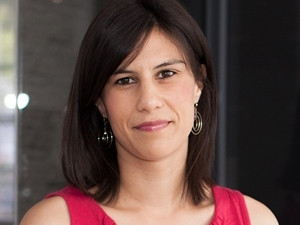Cape Town, 30 Nov 2015

Unlocking the power of the masses by taking the experience and wisdom behind each individual and giving it to the right cause or person, yields unbelievable results. Instead of knowing everything about everything yourself, wouldn't it be easier to tap into the wealth of knowledge available in the minds of many individuals? Open-source sharing is becoming the norm in many industries and increasingly, is being adapted further afield.
Open-source is the future
The basis of collective intelligence, according to MIT professor, Alex Pentland is that "collective recognition is an alternative to centralisation - not everything in one place but localised, rather than centralised awareness." He believes that antiquated beliefs about intelligence are holding us back. We need to break out of old habits, to realise that "we don't need the stuff in our heads - it's our ability to know and find the people with the information we need." Thomas Malone agrees, saying that "most of what I know is in the heads of my friends".
This is creating a whole industry of platform-based communication. Whether available to the public like OneLeap, LeanIn, InnoCentive, or internal-facing applications like Trello, Basecamp, or Google+, people are recognising that matching the answer-seeker and the problem-solver is what has been stunting the concept of knowledge sharing.
In the scientific sphere corporations are setting up funds and releasing 'problems' for the public to have a go at solving. One organisation in particular, InnoCentive, has found enormous success with their online platform which provides a larger intelligence pool for people to access.
So too in the business world, the trend of collective intelligence is being enjoyed as a way to achieve faster results, better performance with a larger scale of interest.
Collective intelligence in the corporate landscape
Michelle van Kesteren, a Principal Consultant at Saratoga, knows how important it is for organisations to be able to dip into the vast reservoir of their collective experience in order to stay ahead. She says that "this is especially relevant in the consulting world, because behind every consultant is an army of experts; and the client reaps the benefit".
So how does Saratoga leverage their collective intelligence, especially when they are scattered across different clients and projects?
Leaving your ego at the door, is almost always the first step. Mohamed Bray, Engagement and Practice Manager at Saratoga, strongly encourages individuals to make themselves dispensable, saying that "while seemingly counterintuitive, this practice demands that within teams, knowledge sharing and trust build stronger teams and produce far more solid outcomes." By making yourself dispensable, you're opening up all of your knowledge and experience to the rest of the team. By leaving your ego at the door, you're able to see the difference in the quality of deliveries.
Van Kesteren reveals that Saratoga introduced three initiatives which "tap into the minds of the community". Their eCoaching series provides bi-weekly information on basic concepts, tools and techniques to guide staff in their day-to-day lives as business consultants. She explains that "less experienced or new members of the team are given support and guidance by their peers who share valuable lessons learnt and provide best practice recommendations, bringing teams closer together."
A second initiative is the peer review process, whose purpose is to improve the quality of client deliverables, as well as a learning opportunity for staff to improve. "Providing a different perspective", reveals Van Kesteren, "it ensures the best flow and content. Mostly, its aim is to grow the capability within the team".
Saratoga's Business Consulting Community sessions aim to mature the competency within the organisation, through the sharing of team expertise gained from projects. It promotes the development of consulting standards, processes and guidelines for the team to contribute to, learn from and execute against. Van Kesteren observes that "a combination of face-to-face and virtual collaboration is the best way to strengthen a company's internal knowledge sharing. While virtual collaboration offers many advantages, face-to-face interaction cannot be replaced."
She encourages the use of organisation-specific social networking tools to foster collective intelligence in the workplace. "We have a Saratoga community page, where everyone is able to collaborate virtually. Gone are the days of searching through central databases, multiple applications, scheduling numerous meetings or being sent from pillar to post to find information."
An outcome of collective intelligence is to watch the broader collective build on your ideas. It's also a faster way to see faults and improve upon the project as a whole. Suddenly the possibilities are so much larger. Through collaborative efforts, achievements can be realised faster and have a broader impact. The new skill is knowing how best to access that very deep pool of knowledge.
Saratoga is a technology consulting company that turns business problems into holistic solutions. To enquire about positions or for more information please visit www.saratoga.co.za or contact them on 021 658 4100.
For more articles published by Saratoga please see their Press Office http://www.itweb.co.za/office/saratoga/
References:
Rhally, C. 2013. ProJurno. Collective Intelligence: Using the crowd to make us smarter.
MIT Communications Forum. 2007. Collective Intelligence.
Wikipedia. Collective Intelligence.
MIT Center for Collective Intelligence. Collective Intelligence.
Share